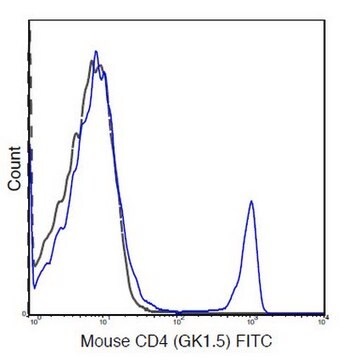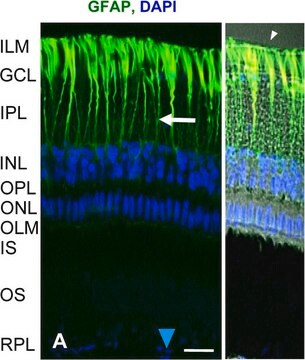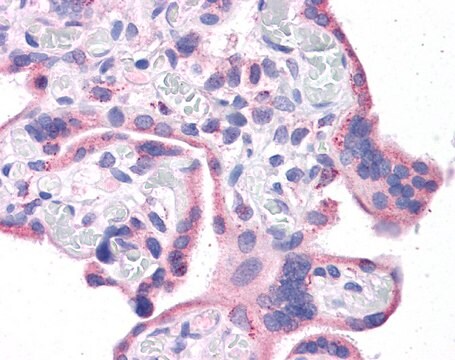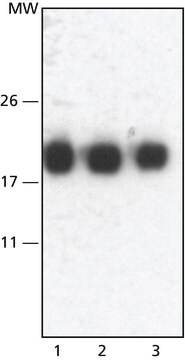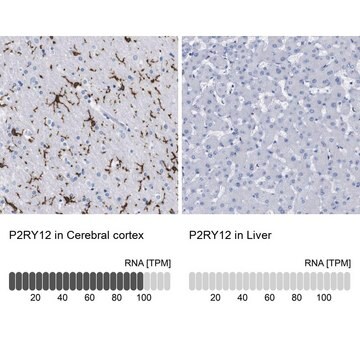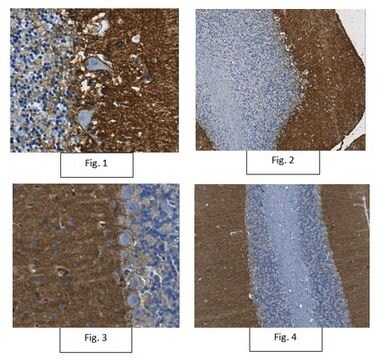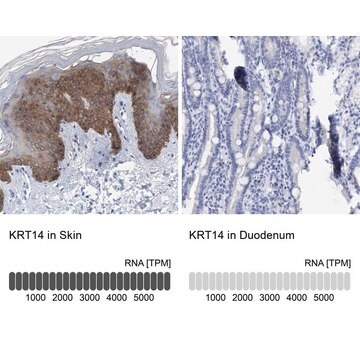SRP2083
WT-1 (-KTS) human
recombinant, expressed in insect cells, ≥60% (SDS-PAGE)
Synonyme(s) :
AWT1, GUD, NPHS4, WAGR, WIT-2, WT33
About This Item
Produits recommandés
Source biologique
human
Produit recombinant
expressed in insect cells
Essai
≥60% (SDS-PAGE)
Forme
frozen liquid
Poids mol.
~55.6 kDa
Conditionnement
pkg of 5 μg
Conditions de stockage
avoid repeated freeze/thaw cycles
Concentration
250 μg/mL
Couleur
clear colorless
Numéro d'accès NCBI
Numéro d'accès UniProt
Conditions d'expédition
dry ice
Température de stockage
−70°C
Informations sur le gène
human ... WT1(7490)
Description générale
Actions biochimiques/physiologiques
Forme physique
Notes préparatoires
Code de la classe de stockage
10 - Combustible liquids
Classe de danger pour l'eau (WGK)
WGK 1
Point d'éclair (°F)
Not applicable
Point d'éclair (°C)
Not applicable
Faites votre choix parmi les versions les plus récentes :
Certificats d'analyse (COA)
Vous ne trouvez pas la bonne version ?
Si vous avez besoin d'une version particulière, vous pouvez rechercher un certificat spécifique par le numéro de lot.
Déjà en possession de ce produit ?
Retrouvez la documentation relative aux produits que vous avez récemment achetés dans la Bibliothèque de documents.
Notre équipe de scientifiques dispose d'une expérience dans tous les secteurs de la recherche, notamment en sciences de la vie, science des matériaux, synthèse chimique, chromatographie, analyse et dans de nombreux autres domaines..
Contacter notre Service technique
